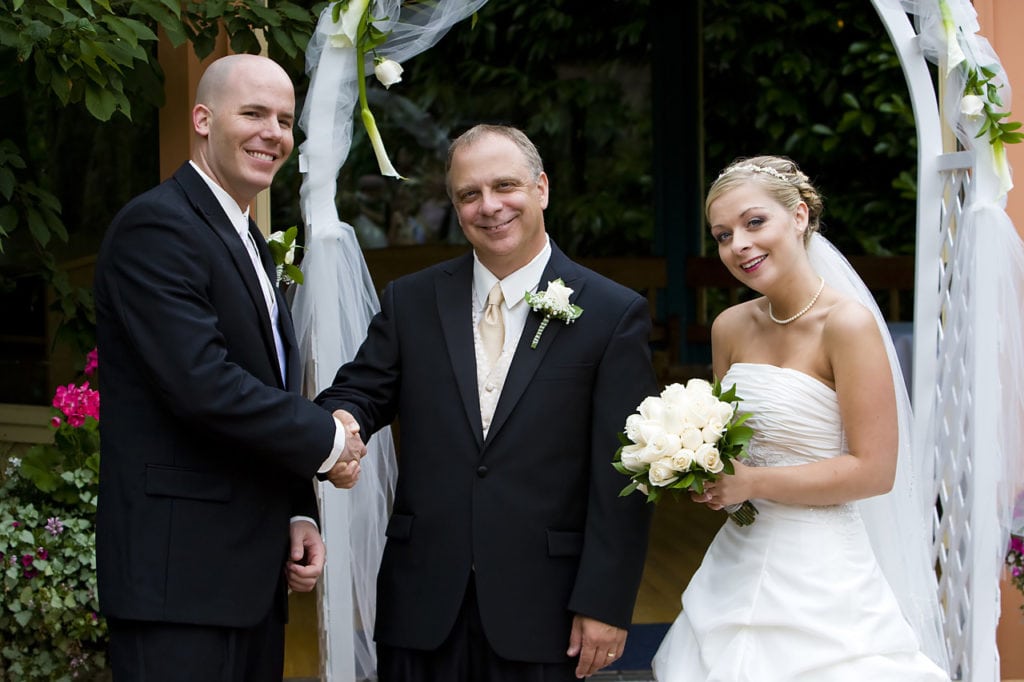filter posts:
Date
Keeping the Camel Out of the Tent
 You have heard the familiar adage that you have to keep the camel’s nose out of the tent if you want to keep the camel out. But what if the camel is the creator? And what if the camel’s nose is the belief that the world was created by God?
You have heard the familiar adage that you have to keep the camel’s nose out of the tent if you want to keep the camel out. But what if the camel is the creator? And what if the camel’s nose is the belief that the world was created by God?
I am amazed at the boldfaced steps that are being taken to make Darwinian evolution mainstream and to marginalize or destroy any mention of God as creator in today’s classrooms. Harvard biologist Richard Lewontin wrote several years ago that we must prefer “science” to “supernaturalism.” Why? “Because,” he said, “we have a prior commitment, a commitment to materialism.” That is stunning in itself, for it is an admission that a philosophical presupposition drives the evolutionist, not the facts. Lewontin agrees. “It’s not that the methods and institutions of science somehow compel us to accept a material explanation” of the world, he writes. “On the contrary,” he continues, “we are forced by our a priori adherence to material causes to create an apparatus of investigation and a set of concepts that produce material explanations.” Nancy Pearcy translates this in her book, “Total Truth.” She says that what Lewontin is saying here is, “We first accepted materialism as a philosophy, and then refashioned science into a machine for cranking out strictly materialist theories.”
Lewontin concludes that this commitment to materialism must be “absolute, for we cannot allow a divine foot in the door.” Or, a divine camel’s nose in the tent.
Don’t believe that the tent flaps have been nailed down? Here are a few examples from textbooks that are used in our nation’s schools today.
“Many people believe that a supernatural force or deity created life. That explanation is not within the scope of science.”
“By attributing the diversity of life to natural causes rather than to supernatural creation, Darwin gave biology a sound scientific basis.”
Darwin himself would be pleased that his theory of evolution has taken root so deeply in our culture. He wasn’t sure about evolution, but he saw it as one of many possible explanations for the origin of the universe that left out God. Make no mistake: leaving out God was his primary objective. He wrote, “If I have erred (by exaggerating the power of natural selection) I have at least, as I hope, done good service in aiding to overthrow the dogma of separate creations.” What was most important to him, Darwin wrote, was the idea that “species have descended from other species, and have not been created immutable.” He was willing to concede his theory for any other viable mechanism out there, as long as it was naturalistic, as long as God could be kept out of the picture.
Funny thing about God. He will not be left out of the picture, especially since He painted it. Only the Bible’s explanation makes sense of where we came from and why we are here. C.S. Lewis responded to those who misinterpret the Bible and in the process make fun of Christians for wanting to go to a heaven where we will “spend eternity playing harps.” Lewis wrote, “The answer to such people is that if they cannot understand books written for grown-ups, they should not talk about them.”
Here’s how God might respond to those who would make up stories to explain the universe. “Who is this who darkens counsel by words without knowledge? Now prepare yourself like a man; I will question you, and you shall answer Me.”
Forget the camel, his nose, and your tent. It is the Lord of the universe with which we have to do.
Look to him. Listen to him.
August 27, 2018
Get the Leaving Part Right
 I was in line at a wedding reception several years ago when a man asked if I remembered what happened at his big day nearly 16 years earlier. I started laughing. The picture is etched in my mind of the two of us who were officiating the wedding standing in front of the two being united that day in holy matrimony. The problem was, there was a third party standing there. Right between the bride and groom. You see, the pastor who was supposed to ask, “Who gives this woman to be married to this man?” forgot to ask. As a result, the man giving the bride away kept standing there. He didn’t know what to do, and the pastor who forgot to ask the question didn’t know there was anything that needed to be done. This was only the third wedding I had officiated so I didn’t know what to do either. We were all undone.
I was in line at a wedding reception several years ago when a man asked if I remembered what happened at his big day nearly 16 years earlier. I started laughing. The picture is etched in my mind of the two of us who were officiating the wedding standing in front of the two being united that day in holy matrimony. The problem was, there was a third party standing there. Right between the bride and groom. You see, the pastor who was supposed to ask, “Who gives this woman to be married to this man?” forgot to ask. As a result, the man giving the bride away kept standing there. He didn’t know what to do, and the pastor who forgot to ask the question didn’t know there was anything that needed to be done. This was only the third wedding I had officiated so I didn’t know what to do either. We were all undone.
As I recall, the bride and groom spoke their vows to each other by leaning forward and looking past the man in the middle. He was no small man, and the image of those vows being tossed across the bow at each other makes me laugh every time I think of it. An awkward situation, to be sure, but the couple came to the same end that every wedding is supposed to come to: they were married when it was over. That story has been told and re-told for these many years, and I am sure it will live on in the lives of their children’s children.
I couldn’t help but think about what that wedding scene represents for so many today who never really left home on their wedding day. Though a man in the middle of the wedding ceremony may not change anything, a mother or father in the middle of the marriage will spell disaster. You have heard these stories. Young newlyweds decide to remodel their living room. The groom’s mother hears about it, orders paint and wallpaper that she thinks would look best, and shows up on Saturday morning ready to go to work. Or a young couple with their first child decides to go to the lake for a summer vacation. When the maternal grandmother hears about it, she insists that the young man not take her daughter and grandchild to that lake “because it is not safe.” Or a young family is visiting grandparents when one of their children acts up and needs to be spanked. The young man’s father tells him he is being rash and begins to teach him, as he says, about the “proper way to discipline your children.”
Now when I officiate a wedding, I will always ask the parents of both the bride and groom to stand. Then I say to them, “You have the privilege and the responsibility to pray for (this couple), to support his leadership in their marriage, to give advice and counsel only when asked, to encourage them and take delight in their life together as husband and wife. Will you pledge to do this?” The two sets of parents don’t hesitate to promise before God and man to let this young couple establish their own household as the Lord requires.
Jesus said it like this: “Therefore a man shall leave his father and his mother and hold fast to his wife, and the two shall become one flesh.” The picture of a mother or a father sleeping between newlyweds makes us shudder. There’s no room for a third party in the middle of a marriage.
Get the leaving part right.
August 20, 2018
This Nourished My Soul
 I love summertime. I have always loved it. It brings back some of my best memories of childhood, which includes, at the very top of the list, trips to Surfside Beach. Every summer my family would rent a small cottage down near the beach and spend a week there. Dad was always a little less stressed and we would play in the sand, swim until we were waterlogged, look for shark’s teeth, fish off the surf, and get sunburned. Getting burned wasn’t much fun but the rest of it was a blast. The day ended with showers for all and a trip down to Murrell’s Inlet for some of the best seafood in the world. We were usually there with my Mom’s parents, and a lot of the talk at the table included stories about previous beach trips and childhood stories from my grandparents about growing up in the 1920s. My granddad would talk about some of the crazy things that happened to him when he was a deliveryman for a laundry and then later a journeyman electrician. My grandmother was a receptionist at Whitaker Park in Winston-Salem, and would regale us with stories about meeting people like Lucille Ball and Gary Moore.
I love summertime. I have always loved it. It brings back some of my best memories of childhood, which includes, at the very top of the list, trips to Surfside Beach. Every summer my family would rent a small cottage down near the beach and spend a week there. Dad was always a little less stressed and we would play in the sand, swim until we were waterlogged, look for shark’s teeth, fish off the surf, and get sunburned. Getting burned wasn’t much fun but the rest of it was a blast. The day ended with showers for all and a trip down to Murrell’s Inlet for some of the best seafood in the world. We were usually there with my Mom’s parents, and a lot of the talk at the table included stories about previous beach trips and childhood stories from my grandparents about growing up in the 1920s. My granddad would talk about some of the crazy things that happened to him when he was a deliveryman for a laundry and then later a journeyman electrician. My grandmother was a receptionist at Whitaker Park in Winston-Salem, and would regale us with stories about meeting people like Lucille Ball and Gary Moore.
After supper we would often walk down to one of the docks at the inlet where the deep sea fisherman were cleaning up from a day out at sea. As a little boy I would stand with my mouth agape at some of the big marlins, giant bluefin tuna, and other game fish that were on display on the docks. Occasionally someone would have a hammerhead or tiger shark strung up on the scales, and we three boys would ogle and point and threaten to push one another into their fearsome and jagged rows of teeth. Dad would almost always get one of the fishermen into a conversation about his big catch, and I learned from my father that you really don’t have to be afraid to talk to anybody as long as you are asking them about themselves.
We would spend the rest of the evening back at the cottage, either playing cards or working on a 1,000-piece puzzle in the living room, or sitting on the front porch and listening to the sound of the waves crashing on the shore. The conversation again would turn to childhood stories, and I would listen and learn of my heritage. I also learned what a good story sounds like and would practice telling the stories of my own life in my head, pretending at times that I would write them all down in a book one day.
The next day at Surfside Beach would be very much like the previous day. But we never got tired of it, and by May every year my brothers and I were counting the days until summer vacation and dreaming of the trip to the beach. It was one week of family time without any interruption from school or chores or friends.
Jesus told His disciples on more than one occasion, “Come apart by yourselves to a deserted place and rest awhile.” Vance Havner used to say that if we don’t come apart and rest awhile, then we will come apart. I for one am very thankful for my parents’ commitment to taking an annual vacation with their three sons. I don’t remember exotic trips to far away places. I remember salty, sunny seascapes, simple fun, sprinkled with stories and lots of laughter.
It nourished my young soul.
August 14, 2018
Zimbabwe Needs the Rock of Ages
 I just learned last week that a longtime ministry partner, Simon Mkolo, has died. Simon was 81 years old and left behind six children and a wife. I met Simon in Zimbabwe, where he lived, in 1999. I had the privilege to go back in 2007, at Simon’s invitation, to speak to a church leaders conference in the village of Manjolo. Here are some memories I wrote down about that journey.
I just learned last week that a longtime ministry partner, Simon Mkolo, has died. Simon was 81 years old and left behind six children and a wife. I met Simon in Zimbabwe, where he lived, in 1999. I had the privilege to go back in 2007, at Simon’s invitation, to speak to a church leaders conference in the village of Manjolo. Here are some memories I wrote down about that journey.
Its name means “the big house of stone.” Zimbabwe is bordered by two rivers and boasts one of the largest waterfalls in the world. “Smoke that Thunders,” known as Victoria Falls, is a sight to behold. The wildlife reserves of Zimbabwe draw tourists from all over the world. The breathtaking beauty of this country’s landscape, however, stands in stark contrast to the bone-crushing poverty of its people. Nearly 75% of the people live in chronic poverty.
I did not go there to try and fix the economy or to confront the political landscape. Nether did I go to address the AIDS epidemic, though more than one-fifth of the nation then was infected with HIV, and more than 500 adults and children were being infected every day. One doctor said, “People are dying of AIDS before they can starve to death.” I did not go to try and help the orphan problem, though there were more orphans per capita in Zimbabwe than anywhere else in the world.
I went to proclaim the Gospel of Jesus Christ. He alone has the power to change a nation. I went to serve alongside Simon Mkolo. Simon met the Lord Jesus as a young man while serving a prison term for being a political rabble-rouser in the 1970s. He came out of prison with a different message and life purpose. Instead of trying to change Zimbabwe from the top down, Simon began to work from the bottom up. He went to the common people, the laborers, the farmers, the merchants. He told them the story of how his life was transformed by a Galilean carpenter, and he invited them to meet the Savior. His message took hold in the hearts of thousands, because the gospel of Jesus Christ “is the power of God for salvation to everyone who believes.” Since he became a Christian, Simon has planted over 300 churches, and each of those churches is making a difference in the towns and villages of a suffering nation.
There were hundreds of people in attendance at the conference in Manjolo, many of whom had walked for four or five hours to get there. They slept on concrete floors in cinderblock school buildings during the week. They gathered under two huge trees and sat from nine o’clock in the morning until nine in the evening. They ate sadsa, the staple food made of maize “flour” and water.
And they worshipped God in the most exuberant and refreshing way I have ever experienced. Singing at the tops of their lungs, they leapt and danced in such a way that huge clouds of dust rose up and danced with them. When we stood up to speak, they applauded wildly, not for us but for the opportunity to hear someone preach the Word of God. They listened patiently as the interpreter spoke our words in their native tongue, Tonga. They took notes, flipping through their Bibles to every passage mentioned. And when the message ended, they bowed their heads to pray.
There was one moment during the week that made me tremble. Dozens of church leaders were standing at the front, having responded to an invitation by Simon Mkolo and the local pastor. Simon turned and asked me to speak a word of encouragement to them, and my mind went to the book of Esther, the story of a young Jewish woman who became Queen of Persia at the same time there was a plan to destroy all of the Jewish people. Mordecai said to her, “Who knows whether you have come to the kingdom for such a time as this?” I challenged them that God has brought them to a place of leadership at such a time as this, when the stability of their nation stands on the brink. As I spoke, some of the people began to weep and then to wail. They were crying for their country and they were crying out to God for strength and wisdom and for help.
The Gospel of Jesus Christ changes lives. It changes hearts. It gives hope where there is none. It changes sinful and deadly health habits and calls people to repentance and faith. It changes sexual behavior and calls people to biblical marriage. The Gospel moves people to have compassion on the hungry and to provide shelter for the orphans.
Zimbabwe is in dire straits, and I don’t suggest for a moment that we need to stop giving money and medical supplies to organizations like the Red Cross and others. But money and supplies are temporary solutions that improve the quality of life for a day or a week. It is the church in Zimbabwe, led by men like Simon Mkolo, that is changing lives for eternity.
That’s why I traveled to the “big house of stone.” I went to help Simon tell Zimbabwe about the rock of ages.
August 6, 2018
